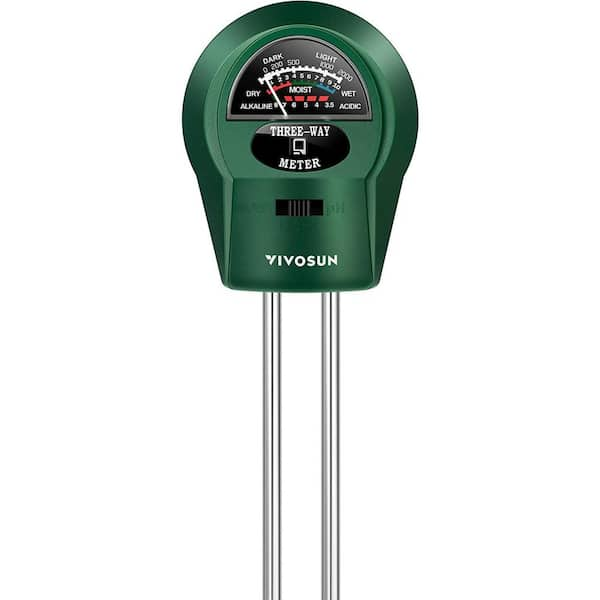The Scientific Research Behind Moisture Meters: How They Function and Why They're Crucial
The Scientific Research Behind Moisture Meters: How They Function and Why They're Crucial
Blog Article
The Ultimate Guide to Moisture Meters: A Comprehensive Overview and How They Can Conserve You Cash
In the world of structure upkeep, building and construction, and various sectors, the importance of accurately determining dampness levels can not be overemphasized. Moisture meters function as indispensable tools in identifying and keeping track of moisture content in materials, helping in protecting against costly damages and guaranteeing the top quality of products. Understanding the subtleties of various kinds of dampness meters, their applications, and the potential cost-saving advantages they offer can be a game-changer for experts and companies alike. Uncovering exactly how these tools can not just streamline procedures however also contribute to monetary cost savings is a journey worth embarking on.
Kinds Of Dampness Meters
One usual type is the pin-type wetness meter, which determines the electrical resistance between 2 pins put right into a material. Pinless wetness meters, on the other hand, use electromagnetic sensing unit plates to scan a bigger location without triggering damages to the material's surface.

Infrared wetness meters gauge the thermal properties of a material to determine its dampness content non-invasively, making them useful for applications where pin or pinless meters might not be appropriate. Comprehending the different types of dampness meters readily available can help industries pick the most suitable device for their details wetness measurement requirements.

Benefits of Making Use Of Moisture Meters
Wetness meters offer important benefits in accurately keeping an eye on and analyzing moisture levels in diverse products and settings. One of the key benefits of using moisture meters is the prevention of possible damages created by excess moisture.
Additionally, using moisture meters can lead to boosted energy effectiveness. In farming setups, moisture meters play a vital function in enhancing plant yields by making it possible for farmers to keep an eye on soil wetness levels and make educated irrigation decisions.
How to Choose the Right Moisture Meter
When choosing a moisture meter, it's vital to guarantee that the meter is suitable for the certain material you will certainly be screening. Different materials have differing electrical homes that can impact dampness readings, so choosing a meter designed for your material is vital for exact results. By thoroughly assessing these variables, you can pick his explanation a wetness meter that fulfills your requirements and offers accurate moisture measurements for your tasks.
Appropriate Methods for Moisture Meter Use

Expense Savings Through Wetness Meter Applications
Exactly how can the tactical application of moisture meters lead to substantial expense financial savings across numerous industries? In the farming market, moisture meters help in determining the optimal time for collecting plants, avoiding over-drying or excess dampness that can influence the final item's high quality.
Likewise, in building and construction, moisture meters assist protect against expensive problems by discovering wetness levels in building materials, such as wood or concrete, which visit this website can lead to architectural problems if not dealt with quickly. By identifying problem locations early on, professionals can take rehabilitative procedures to prevent substantial repair work or substitutes, inevitably conserving money and time.
In addition, in the food processing sector, moisture meters are essential for checking item top quality and ensuring conformity with safety regulations. By precisely gauging dampness web content in food, makers can stop perishing, keep freshness, and reduce waste, resulting in considerable cost financial savings. Generally, the strategic application of wetness meters is an important investment that can lead to considerable cost decreases and boosted performance throughout numerous industries.
Conclusion
In conclusion, wetness meters are beneficial devices for finding and measuring wetness levels in different products. By utilizing the appropriate wetness meter and adhering to appropriate methods, customers can efficiently protect against expensive problems caused by excess moisture.
Dampness meters offer as important tools in detecting and keeping an eye on moisture web content in materials, assisting in avoiding expensive damages and guaranteeing the high quality of items. Infrared wetness meters gauge the thermal buildings of a product to determine its moisture content non-invasively, making them beneficial for applications where pin or pinless meters might not be see page ideal.Wetness meters use indispensable benefits in properly keeping track of and assessing moisture levels in diverse materials and atmospheres. In agricultural settings, dampness meters play a vital function in optimizing crop yields by allowing farmers to monitor dirt moisture levels and make notified irrigation choices.In conclusion, moisture meters are useful tools for discovering and gauging dampness degrees in different materials.
Report this page